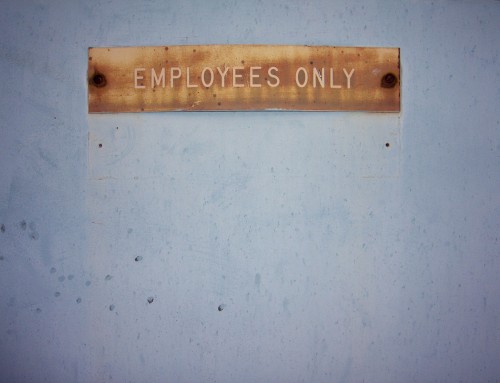As a small business owner, it’s important to protect your employees and your business from unexpected accidents or injuries. One way to do this is by investing in workers’ compensation insurance. This type of insurance can provide financial support for medical expenses and lost wages if an employee is injured on the job. In this article, I’ll cover the ins and outs small business workers’ comp insurance.
What is workers’ compensation insurance?
 Workers’ compensation insurance is a type of insurance that provides benefits to employees who are injured or become ill as a result of their job. These benefits can include medical expenses, lost wages, and rehabilitation costs. In exchange for these benefits, employees give up their right to sue their employer for negligence. Workers’ compensation insurance is mandatory in most states for businesses with employees. The US Department of Labor also has guidelines on workers’ comp. It’s important for small business owners to understand their obligations and options when it comes to this type of insurance.
Workers’ compensation insurance is a type of insurance that provides benefits to employees who are injured or become ill as a result of their job. These benefits can include medical expenses, lost wages, and rehabilitation costs. In exchange for these benefits, employees give up their right to sue their employer for negligence. Workers’ compensation insurance is mandatory in most states for businesses with employees. The US Department of Labor also has guidelines on workers’ comp. It’s important for small business owners to understand their obligations and options when it comes to this type of insurance.
Why is workers’ comp important for small businesses?
Workers’ comp insurance is important for small businesses because it protects both the employees and the business itself. Without workers’ comp insurance, a small business owner could be held personally liable for any injuries or illnesses that occur on the job. This could result in costly lawsuits and even bankruptcy for the business. Additionally, workers’ comp insurance provides important benefits to employees who are injured or become ill on the job. Specifically, it helps them to recover and return to work as soon as possible. Overall, small business workers’ comp insurance is a must-have for any small business that wants to protect its employees and its bottom line.
What does workers’ comp cover?
As mentioned, workers’ comp insurance typically covers medical expenses, lost wages, and rehabilitation costs for employees who are injured or become ill on the job. It may also provide death benefits to the family of an employee who dies as a result of a work-related injury or illness. The specific coverage and benefits provided by workers’ comp insurance can vary depending on the state and the type of business. It’s important to consult with an insurance professional to determine the best coverage for your small business.
How to choose the right workers’ comp policy for your business.
Choosing the right workers’ comp policy for your small business can be overwhelming, but it’s important to take the time to research and compare options. Consider factors such as the size of your business, the type of work your employees do, and the state requirements for coverage. It’s also important to work with a reputable insurance provider who can guide you through the process. This will ensure that you have the right coverage in place to protect your employees and your business.
There are several different types of workers’ compensation policies available. Each one meets the unique needs of different types of businesses. Here are some of the most common types:
-
Standard workers’ comp policy
This is the most common type of workers’ comp policy. It covers employees for work-related injuries and illnesses. It typically provides coverage for medical expenses, lost wages, and rehabilitation costs.
-
Self-insured workers’ comp policy
Some larger companies choose to self-insure their workers’ comp coverage. This means they set aside funds to cover the cost of any claims that arise. This can be a cost-effective option for businesses with a large number of employees. It also comes with additional responsibilities, including managing claims and ensuring compliance with state regulations.
-
Temporary disability insurance
This type of policy also provides coverage for employees who are unable to work due to a work-related injury or illness. It typically provides a percentage of the employee’s regular wages for a specified period of time. As it’s temporary, it usually ends when the employee is able to return to work.
-
Occupational accident insurance
This type of policy is designed for independent contractors and other self-employed workers who are not covered by traditional workers’ comp insurance. It provides coverage for work-related injuries and illnesses, but typically does not cover lost wages.
-
Voluntary compensation insurance
Some states allow employers to opt out of traditional workers’ comp coverage. Instead the company may purchase voluntary compensation insurance. This type of policy provides similar benefits to workers’ comp. However it is governed by different regulations and may have different eligibility requirements.
It’s important to carefully consider your business’s needs and consult with an insurance professional to determine the best type of workers’ comp policy for your business.
How to file a workers’ comp claim.
 If an employee is injured on the job, it’s important to file a workers’ comp claim as soon as possible. The first step is to provide the employee with the necessary medical attention. Next, the employer should notify their workers’ comp insurance provider and provide them with the necessary information about the injury. The insurance provider will then investigate the claim and determine if it is covered under the policy. If approved, the employee will receive compensation for their medical expenses and lost wages. It’s important to follow the proper procedures to ensure that the claim is processed quickly and accurately.
If an employee is injured on the job, it’s important to file a workers’ comp claim as soon as possible. The first step is to provide the employee with the necessary medical attention. Next, the employer should notify their workers’ comp insurance provider and provide them with the necessary information about the injury. The insurance provider will then investigate the claim and determine if it is covered under the policy. If approved, the employee will receive compensation for their medical expenses and lost wages. It’s important to follow the proper procedures to ensure that the claim is processed quickly and accurately.
Final Thoughts on Small Business Workers’ Comp Insurance
In conclusion, small business owners have a responsibility to protect their employees unexpected accidents or injuries. This also helps their business avoid financial hardships. Workers’ compensation insurance is a crucial tool for accomplishing this. By investing in this type of insurance, small business owners can provide financial support for medical expenses and lost wages if an employee is injured on the job. This helps to ensure that employees receive the care they need to recover and return to work as soon as possible. It’s important for small business owners to understand their obligations and options when it comes to workers’ comp insurance. Additionally, it’s important to work with a reputable insurance provider to choose the right coverage for their business. By doing so, they can protect both their employees and their bottom line.
For information on other types of insurance, I encourage you to check out these articles.





Leave A Comment